Interview with Half-Life Writer Mark Laidlow
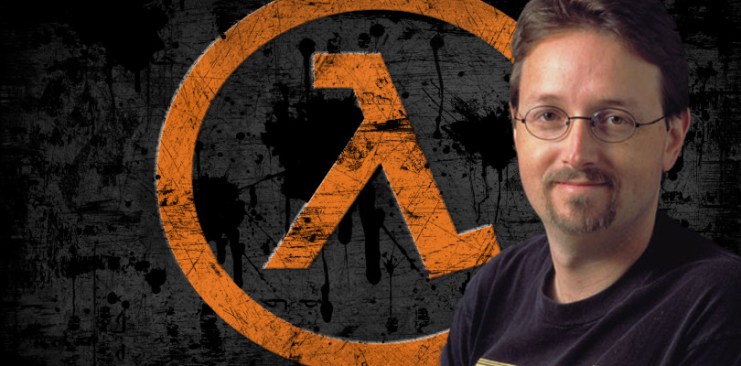
Half-Life is one of our favorite games. In fact, even now Half-Life 2 is running in some of my windows. One of those who created this amazing story, retro gaming legend Mark Laidlow himself visited our office to tell about the glorious days and that cooperation is always the best way of development.
How did you get to work at Valve?
I worked as a lawyer’s secretary and at the same time wrote books and stories. It turned out that I started writing video game reviews for Wired magazine in which my friend Mark Frauenfelder (better known as boing-boing) was the editor. In Wired, I had a reputation as a “guy with video games,” so I was assigned to write an article about id Software, which was then known as the creator of Doom. When I started talking to the guys from id, it seemed more interesting to tell in an article about creating Quake. I started creating maps for Quake in WorldCraft Editor (which later turned into Hammer), and around the same time Gabe Newell and Mike Harrington tried to hire WorldCraft author to write development tools for Valve. As a journalist, I went to meet him and wrote a letter of recommendation to the immigration service. I saw what Valve was working on, and immediately wanted to participate in it. At that time, I had several acquaintances in the FPS developer community, but the impetus for creative work was precisely the people from Valve, who became my closest colleagues and friends for the next couple of decades.
')
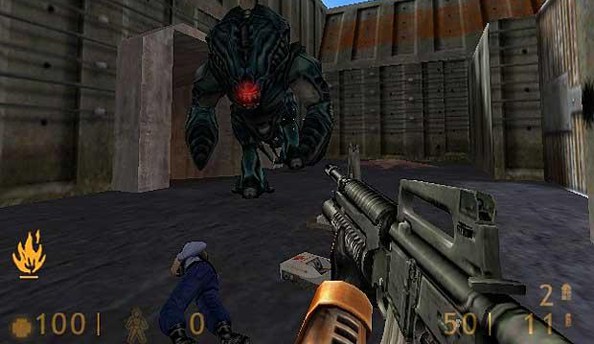
Half-Life is one of the most important PC games ever. How was it working on her? Can you describe the atmosphere inside Valve during the development process?
It was very exciting, we worked on a whim, without any rules, and every day brought discoveries. Of course, there were many fears, anxieties and doubts. It seemed that the development will last forever, although now I remember that the game was released just a year after I joined the company. Other gaming companies flourished and disappeared around us, innovative games appeared and fell almost daily. A ghost of failure was constantly hovering over us.
Half-Life is also the first first-person shooter with a deep and complex storyline. What did you feel when you changed the whole game genre with others?
Today the plot does not seem so complicated or deep, I think we just neatly created the illusion of depth. When I came to Valve, I knew that no one was using the FPS toolkit to transfer the plot, so the whole team was eager for this, although no one knew exactly how to do it. Therefore, I helped to add a bag of good old storytelling techniques to the techniques of the new game and the level design that other people created. I felt a holy thrill to them. It seemed to me that I was just borrowing the old standards, and they were doing something really new. But it was ok. The task of the plot is to dissolve against the background and give the whole game a sense of integrity. History has always sought to make almost invisible. After gaining experience, in Half-Life 2 we began to move on, but at the same time we saw how other developers were experimenting more boldly with the plot. It was an exciting time to work in an extremely narrow FPS niche. Not sure if I could make the same contribution in another area. The right person at the right time in the right place, etc, etc. Very much I was lucky.
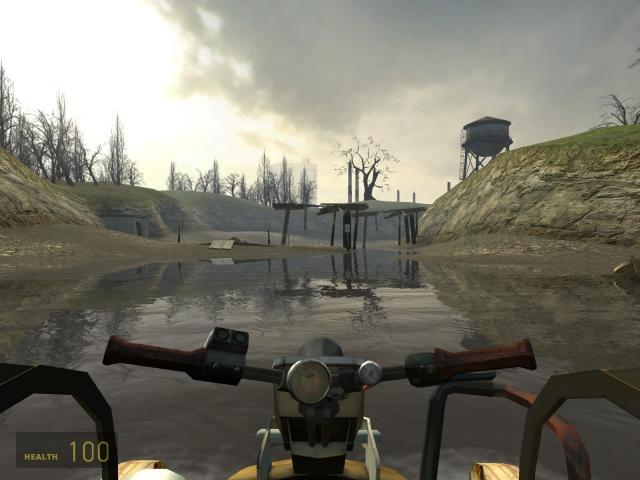
What were your main sources of inspiration and ideas for working on the Half-Life storyline?
When I came to Valve, most of the story was ready. Basically, I brought it to mind. I didn't have a bunch of original ideas, I just tried to find ways to make all the crazy fragments work together. Most of our ambitious plot ideas were postponed to HL2. It can be said that the most effective plot idea was the very beginning of the game, from a trip in a car to escape from a test chamber. It was inspired solely by the design of the levels. I sat with the designer Brett Johnson, who created this part of the game, we ran through endless corridors and laboratories completely destroyed and destroyed. Something in them definitely happened, but what? Seeing the ruined levels of Brett, I asked him if he could clear them so that we could see the level before the coming catastrophe, which would serve as a transition to the ready-made levels. Brett admired this idea and he created a version of the level before the crash overnight. As soon as we saw it, we realized that it would work. That is, we simply improvised with level design tools, and there was no inspiration that came to us. Similarly, the first trip in the car grew out of a conversation with the programmer Jay Stelli, who added the “train” object to the tools for reasons that are still not clear to me. I assumed that they were going to make a scene with a journey by train, but did not know that no one did it, except maybe a scene for a fragment of the battle. And this led us to the idea of a scene with a study tour in a car, which initially looked like a pre-recorded cutscene. That is, I drew inspiration from examples and unfinished work of my colleagues. What they did was constantly inspiring me to ideas that were suitable for them.
Half-Life 2 did the seemingly impossible and refined the original in every way. How do you feel about this sequel?
Constant technical progress led us to the idea of improving plot transfer tools, especially characters. I do not think that radical improvements have arisen at the stage of scripting, just now we had technologies that we did not expect. We started thinking about improving performance, about more convincing characters, about real feelings instead of vulgar game violence. Working with “live” characters, we began to think more and more about a richer and deeper story. It affected everything. In a sense, this was also the influence of tools. Would we try to tell a more ambitious story if we had technology at the level of Half-Life 1 and characters without facial expressions? I dont know.
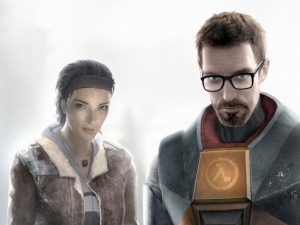
Who are your favorite characters in the Half-Life universe and can you explain why?
Dr. Kleiner was the first character I brought with this series of games. Hal Robins was my old friend, and as soon as I saw the scientists of Black Mesa, I thought that Hal should voice them. So Dr. Kleiner is probably my favorite. And Alix Vance, she is a strong and full-fledged character, but the most important thing brought in her game Merle Dandridge. I think it was thanks to Merle’s reaction at the end of Episode 2 players that the open uproar excited so much. If she hadn’t pulled out the acting game, no one would have wondered if the game would have a sequel. I also like Dr. Bryn, it was very interesting to write a script for him. As a child, I adored Robert Culp, so working with him was exciting, and his death was an incredible tragedy. Somehow I would like to work with Dr. Brin even if he had to come back in an alien-altered image. And how can I not mention the G-Man, whose monologues to Mike Shapiro always managed to convey somehow unexpectedly. Either Barney, or ... or ... I think most of all I'm proud of giving birth to these characters. Dr. Magnusson! Vortigonts! I am delighted.
You also worked on other classic Valve games such as Portal and Left for Dead. Did you write scripts for these episodes, and which game was the most interesting to work with in Valve?
I did not work on them. But we wrote all the characters for Dota 2. Together with two other writers (Ted Kosmatka and Christopher Katz) we wrote and watched the recording of more than a hundred characters for several years. It was interesting, but there was no plot in it, so, as an author, I could not turn around. In Half-Life, I was like a fish in water. In Dota, I was like a fish in a tiny living area aquarium. But still it was exciting!

Do you think Half-Life 3 will ever be released and do you want to write a script for this game?
I have no idea. And I'm not interested in going back. I had ideas for Episode 3. All of them had to move the series to that level, after which I could retreat and give way to a new generation. I was hoping for a plot twist between HL2 and HL3, which would become as dramatic as the turn between HL1 and HL2. Honestly, I don’t know if anyone else shared this vision, but it seemed to me important to give freedom to those who will inherit the series from us, and to complete all my story moves to my satisfaction. Unfortunately, I could not do this. But I never thought of HL3, unless one considers that HL3 and Episode 3 are one and the same. I expected that all parts would be permanently completed without the end of the plot. There were rumors that in Ep3 or HL3 the story of Gordon Freeman would end, but not sure that they were true. In Ep3, I intended to complete all HL2 related story lines. But they still had to end with both HL1 and HL2: Gordon remains in the space of uncertainties, waiting for the start of a new game. One open outcome after another.
Is writing a script for a video game different from creating a story, and from what do you get more pleasure?
I have not written stories for more than twenty years, and one thought about them tires me out. Creating a story is a journey alone. I liked the creation of the plot for the games, the energy of cooperation, the way all my ideas were improved by other people. But I think I will return to the stories in order to rediscover the thinking process. Now it seems important to me. When I came to Valve, I had something to share. I hope that now I can share with the writer inside me what I learned from the games.
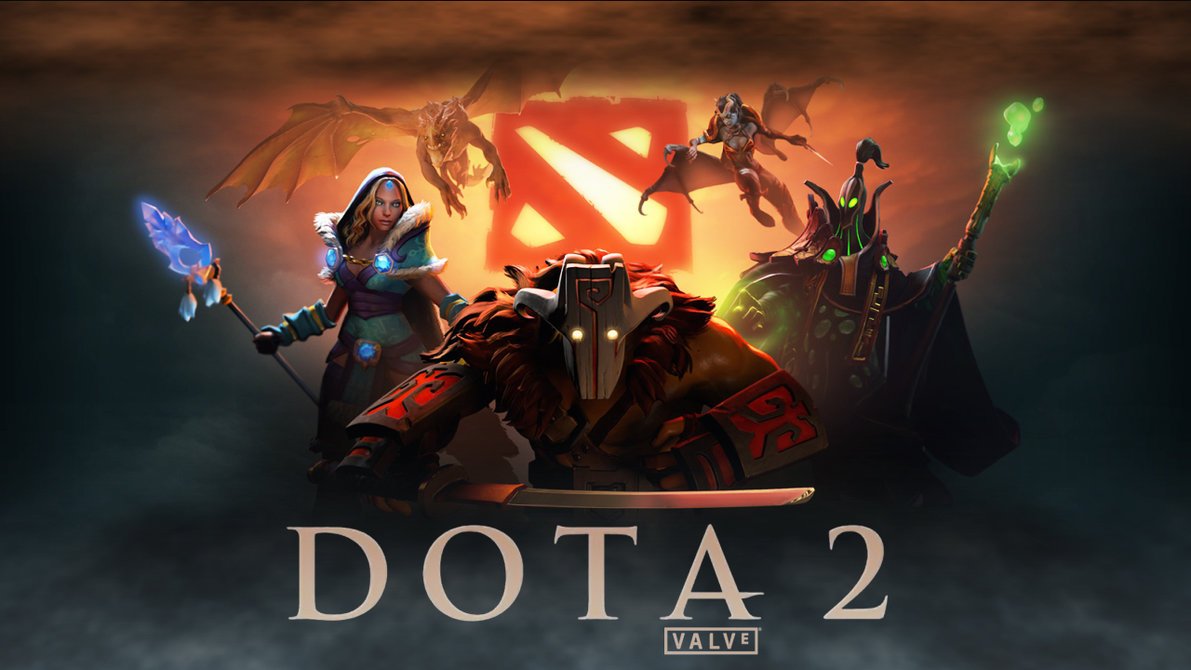
Obviously, you are a big fan of games. What game do you like the most and in which game do you think is the best story?
I like to play games that are very different from my work, but I still dream of the opportunity to work on Thief. I did not succeed in this, because I worked at Valve, and now I have to live with it. I am a big fan of the Zelda series. I think now my favorite game is Dark Souls, but I never studied its ENT and I was not very interested in it. However, I like the fact that this game feels like a complete and original world in itself. I read quite a lot about Laura Bloodborne, which I liked. But I do not want to say that in these games a great story. Perhaps, when I move away from creating games, I will start looking for plot rich games for their own sake. I recently bought a Tides of Numenera. At the time I played Torment, I was not a big fan of text in games, but maybe my tastes have changed.
If you could go to a bar with a video game character, then who would you choose and why?
Garrett of Thief. Most likely, in the morning I will wake up with empty pockets, and the secret panel behind my portrait will be opened and robbed, but it would be worth it.
Source: https://habr.com/ru/post/373647/
All Articles